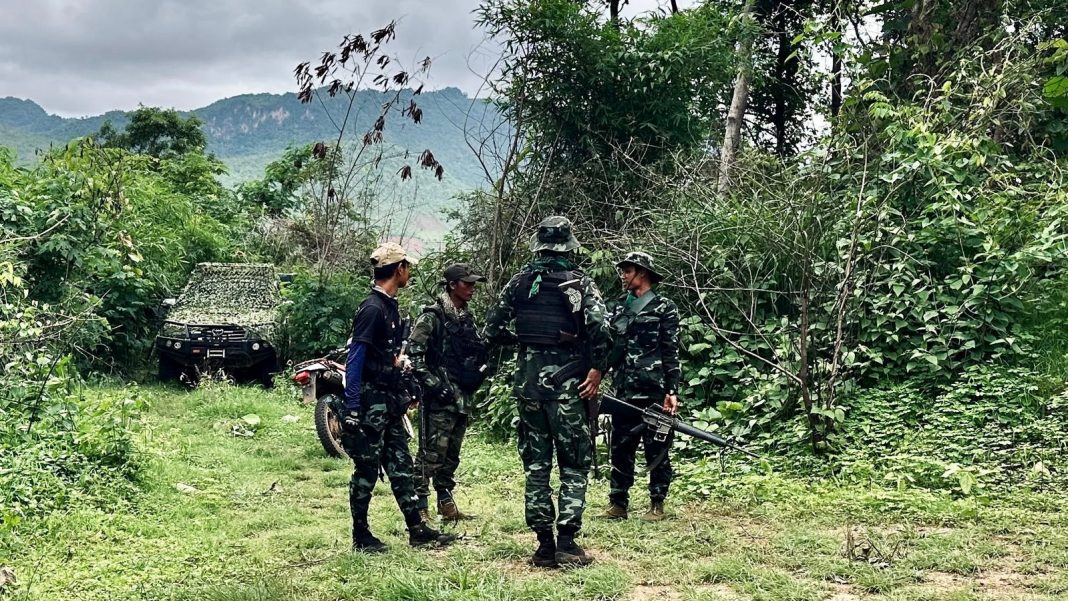“What if nothing much is going on when you get there, and you’re stuck for weeks?” one of the Sky News bosses asked.
It was a strange but valid question as we mulled over final plans for our undercover trip to the jungles of Myanmar.
We knew that there had been a military coup in 2021, a civilian uprising, and tales of a growing civil war, but the details were sketchy.
Foreign journalists are sometimes allowed into Myanmar by the junta, but the problem is that you’re watched everywhere you go, and you can’t go where you want. You’re only shown what the government wants you to see. And for many local journalists, it’s impossible to work freely, many are in hiding, being hunted down by the junta, others have fled to the jungle.
For two years we had been wrestling with a plan to go to Myanmar and find the other side of the story, but the COVID-19 pandemic, then getting shot at the start of the Ukraine war, and of course the Ukraine war itself, had ensured that our trip needed to be delayed.
Sometimes journalistically you just know there is a story waiting to be told. I sensed it, and Sky senior foreign producer Dominique Van Heerden was absolutely convinced of it and urged everyone to dismiss any thoughts that a month in the jungle might be a waste of our time.
Read more:
The secret jungle hospital on the frontline
Displaced children in Myanmar
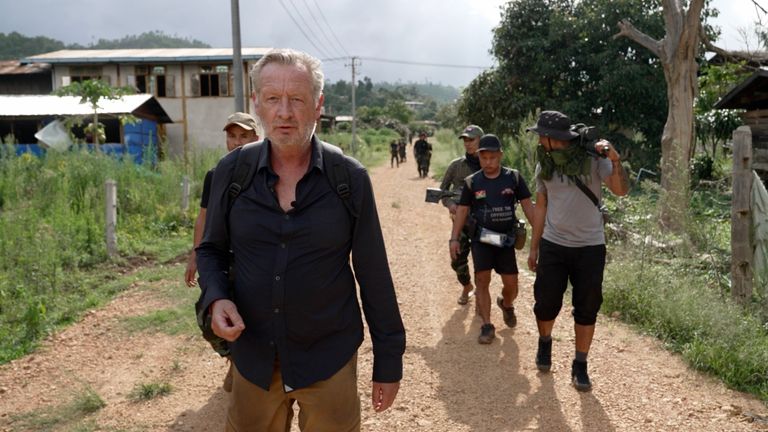
Stuart Ramsay with his crew in Myanmar
As I glimpsed the makeshift tents of thousands of displaced people clinging to the sides of mountains and drove along roads past the hulks of Myanmar military vehicles destroyed in battles waged days before, I knew we were right to come.
There is a large civil war raging in this country, a civil war that has been running on and off for decades but is now supercharged by the junta takeover in 2021 – and an upsurge in mainly young people flooding from cities to join militias and armies across the country’s many ethnically diverse states.
The jungle of Myanmar was to be our home for a month as we reported on a war that has been so rarely witnessed by outsiders. Our job was to gather the evidence of a conflict the junta denies and record the testimony of thousands of civilians forced from their homes by wave after wave of airstrikes, artillery shells, and infantry attacks.
Schools, hospitals, places of worship, shops, and even their rice fields are being destroyed in the military’s attempts to crush the resistance.
Read more about Myanmar:
How China is using a new railway to extend influence in Myanmar
More ‘death and destruction’ to come, UN warns
Children ‘among 100 dead’ as military targets village
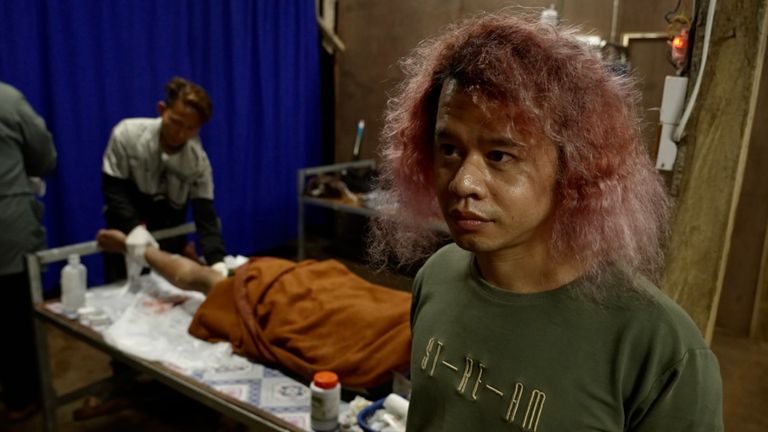
Dr Myo Khant Ko Ko is the chief surgeon at the hospital Sky News visited
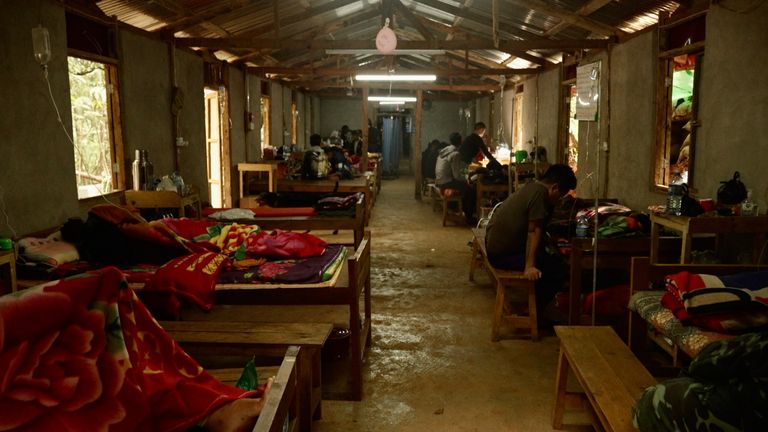
A ward at the jungle hospital
Deep inside the country, every day it was clear this was a dangerous and challenging exercise. There would be no easy withdrawal if we were injured or in trouble, no respite from danger as everywhere is dangerous, and no safe haven to flee to if we found ourselves surrounded.
But that’s the life people in Myanmar experience every day, and they have no option of leaving after a month.
We were always on the move, and changed camp frequently because you couldn’t stay anywhere for too long because of the likelihood of spies spotting us and reporting back to the authorities.
Please use Chrome browser for a more accessible video player
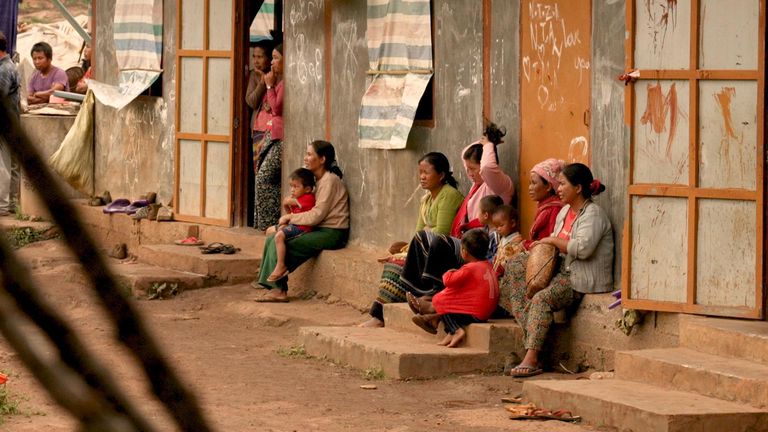
5:36
Inside Myanmar: The civil war
I don’t think I’ve ever done an assignment where I felt so at risk every hour of every day.
But we felt it was a risk worth taking, to bear witness to the incredible bravery of the volunteers, medics, doctors and nurses, working in horrendous and dangerous conditions – and to record the resilience of families, surviving and even thriving in an atmosphere of daily danger, death and destruction.
Most of those we spoke to told us how instead of breaking their resolve, in many ways the Myanmar military is actually making that resolve even stronger.
Click to subscribe to the Sky News Daily wherever you get your podcasts
When we were leaving, we wanted to thank everyone who looked after us, and that was incredibly emotional because we did feel that we were leaving them behind.
Leaving the hospital was also particularly upsetting because we knew there was a good chance we wouldn’t see any of these people again. And they knew it too.
As we made our way out, one of the surgeons came over, looked us in the eye, and said: “I hope to see you one day again and have a drink together in Yangon… when this is all over.”
Will they be successful? It’s possible, but it’s likely to take an awfully long time.


